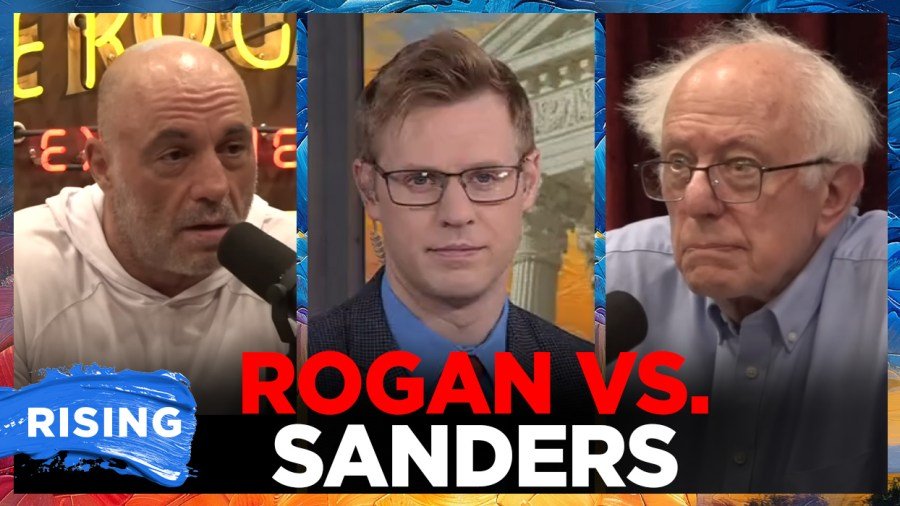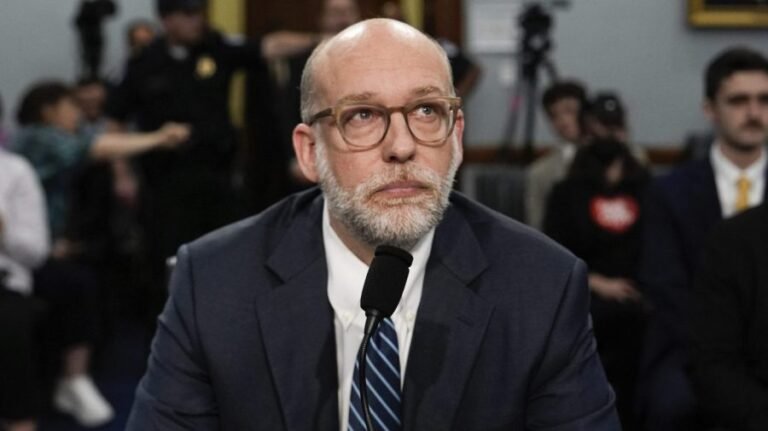
Senator Bernie Sanders (I-Vt.) returned to the Joe Rogan podcast yesterday, and what an episode it was!
Once upon a time, Sanders had of course been Rogan’s preferred candidate. The podcasting giant gave the independent-left Democrat his endorsement in 2020 — an endorsement that many mainstream liberals treated as a drawback at the time, which seems quite insane today.
In fact, some members of the liberal media wanted Sanders to reject the endorsement and distance himself from Rogan, due to Rogan’s contrarian and independent-minded views on topics like the COVID pandemic, transgenderism, “wokeness” and so on.
Fast-forward to 2025, and Democrats are desperate for their own “liberal Joe Rogan,” having now had to grapple with the fact that progressivism’s knee-jerk rejection of every broadly popular figure who does not fit neatly into a box has left them friendless and at odds with the trajectory of American cultural life.
So I’m not surprised that, this time around, there aren’t any Democrats wagging their fingers at Bernie for going on Rogan. Could it be that they’d like to learn from him?
I will say this: Sanders maintains a certain appeal. He’s still quite sharp and was able to converse with Rogan deftly on a range of topics, despite his advanced age. He is so much more cognitively capable than Joe Biden was, that it’s frankly embarrassing that the Democratic Party didn’t go with this option in 2020.
That said, he made a number of arguments which, while perfectly well articulated and reasonable-sounding, are wrong in my view. In fact, Rogan even called one of them out as Sanders was making it.
This early part of the interview focused on the power of billionaires to influence public policy with their dollars — something the progressive left is obsessed with. Sanders attacked the Citizens United Supreme Court decision, which he thinks is pretty much the worst thing that ever happened to our country, and the source of all our problems.
Set aside for the moment the obvious problem that Sanders is complaining about a Supreme Court decision that allows you to, well, use your free speech to criticize Bernie Sanders — which to my mind is something that should obviously be permissible in a democracy. But here’s the next part, wherein Rogan reminded his viewers that it is not the case that one party receives tons of money from wealthy people, and the other does not.
Both parties, and their candidates, are the recipients of huge sums of money. The reason is that the federal government has tremendous power to affect the bottom lines of wealthy people. That’s why they spend so much.
The feds get to decide whether to break Meta into a bunch of smaller companies, so of course Mark Zuckerberg is going to spend his money to stop that. The feds get to decide whether Amazon, the most efficient engine of meeting human need ever devised, gets hampered by costly regulation. You’d better believe Jeff Bezos is going to get involved in politics. It’s true of Apple. It’s true of Google. You bet it’s true of Elon Musk.
And it’s not just wealthy individuals. Activist groups such as teachers unions also spend millions of dollars to help elect Democrats, because they think Democrats do a better job protecting their jobs, wages, and summer vacations.
If you don’t like how much money is spent on politics, then the best solution, in my view, is to make politics matter less. If the government had less power, it wouldn’t be worth spending so much to control it.
But I want to go back to the first part of Sanders’s answer and remind everybody watching, once again, that this is about not just money, but about speech. Citizens United was a film company that made a documentary critical of then-candidate Hilary Clinton during her failed 2008 run for president. The Federal Election Commission fined the filmmakers for daring to air television advertisements for this film within 30 days of a primary election or 60 days from the general.
Think about that: The feds were actually saying they had the power to stop filmmakers from buying ads to promote their documentaries.
Before the Supreme Court, attorneys for the Federal Election Commission argued that they could do the same to a book — in fact, that they could stop you from publishing a book about a candidate, if it was too close to the election. That’s what convinced Associate Justice Anthony Kennedy, the Court’s swing voter at the time, that the law had to be struck down. And don’t take my word for it — here was Kennedy discussing the case years later.
I appreciate why political figures, members of Congress and perhaps Sanders himself wouldn’t want you to be able to publish a critical documentary, or a film, or to advertise it on television. But it should be obvious to Rogan and his viewers, who correctly prize free speech, that such a law would have, and did, violate their First Amendment rights.
If we want to limit how much say wealthy people have over government policy, we have to set limits on government policy, not on wealthy people — because limits on people apply to my free speech rights, and to your free speech rights, too.
Robbie Soave is co-host of The Hill’s commentary show “Rising” and a senior editor for Reason Magazine. This column is an edited transcription of his daily commentary.


